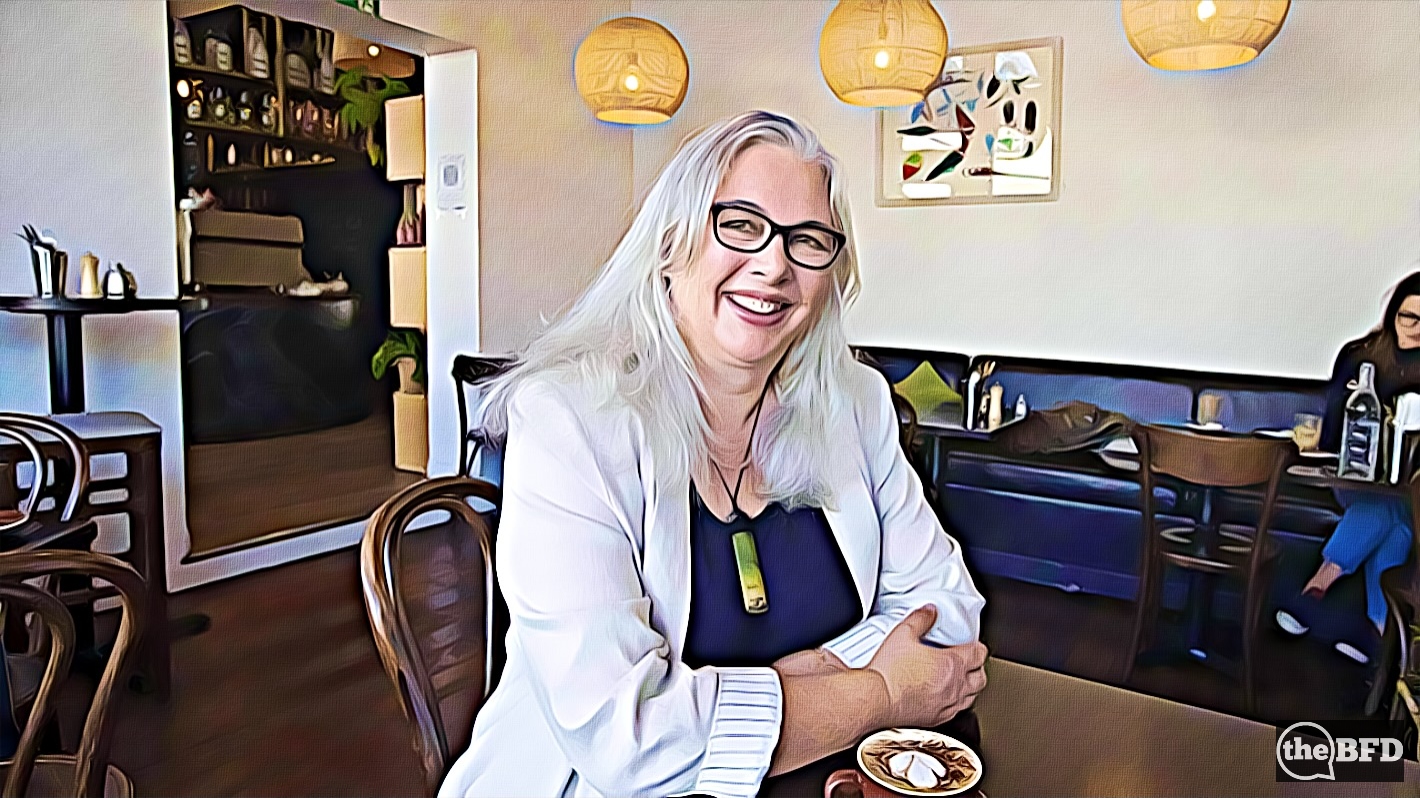The appointment of a radical to a position of such sensitivity as Director of He Whenua Taurikura – New Zealand’s National Centre of Research Excellence for Preventing and Countering Violent Extremism – bothers me, as it should you.
Given her lack of background in intelligence or extremism, except her own, our agenda antennae are twitching wildly. According to broadcaster Sean Plunket, the position was neither advertised nor contested, I have no idea if that is correct, but there is this remnant, a curiosity:

Apart from her welcome magnificence, what does she bring to the role of Director? Wellington is home to a real specialist in counter-terrorism and intelligence studies, a teaching fellow at Massey University, prior to that a Research Fellow at the Centre for Strategic Studies, Victoria University, Wellington where he researched the impact of terrorism on New Zealand. Perhaps John Battersby blotted his resume when, writing in the National Security Journal, he reminded New Zealanders (recoiling from the horrors of the mosque shootings, and the subsequent knee-jerk reactions to the ‘threat of “right-wing” terror’):
“Contrary to the emerging media myth that New Zealand has gone easy on its Right-Wing activism, it has been generally true that historically there has been more Left-Wing political violence in New Zealand.”
Or perhaps it was his sober assessment following the end of the parliamentary grounds occupation which appeared in the Herald under the headline ‘Parliament protest and critical thinking – this isn’t us, is it?’ on March 9th this year:
“But the dispersal of a riot is not the resolution of a protest. They’re different things. And if the underlying issues at the heart of the latter go unaddressed, then protest will go on. These revolve around the segregation of our society – a state of affairs entirely unacceptable based on gender or race, but openly institutionalised on vaccination status. […] Voices have emerged from the “righteous” attempting to reassert their control of the protest with constant assertions that the violence was due to foreign influences, conspiracy theories, misinformation, and of the alt-right. There have even been claims that the protests from the Springbok Tour weren’t this violent. Yet they were, and none of this is new. This is us.”
Who knows, perhaps Mr Battersby was approached but turned it down, but there are others as qualified and respected as him, in fact several others, so how and, more importantly, why have we given this sensitive position to a non-specialist, a character given to wild hyperbole and a (now hidden) vicious social media presence?
Our new Director Ms Kidman regularly disparages non-Maori as settler/colonials in her tantrums (despite being for the largest part of her gene-pool a settler/colonial herself). We have to ask: is such an earnest and agitated flagellator, self-flagellator, a perfect pick for the job? A person that calls herself ‘activist’ and describes herself in rhetorical retort as “Your worst nightmare”:

Calling herself “a stroppy cow”, an “angry native” and claiming victimhood on the part of her minority genes:
“Legatee of invasion and a brutal tribal diaspora. So many of us. Still landless. Thanks, colonizer, thanks for fucking nothing.”
Is this the type of imbalance we wish to bring to a centre for countering extremism? Is that the sort of measured professional judgement we hope to see in assessing the results from her pool of ‘researchers’, or the attitude we want conveyed at the annual ‘Hui’ planned for the provinces?
Or is she supremely suited due to the appeal of her ‘Decolonisation’ credentials? Active in the Ministry of Education, celebrating the new ‘History’ curriculum which ignores the largest part of New Zealand’s history: the 500 years of pre-British contact (and don’t mention ‘The Musket Wars’). A new history that focuses on the more violent episodes in some tribes’ rebellions: a history or “histories of critical mourning approach to remembering this founding violence.” She has made reference to this in part in her own work, and that of her ‘revisionist’ historian husband Vincent O’Malley, who made the inflammatory claim of “atrocities committed, women, children, and elders were burnt alive in their houses and the community church” (O’Malley & Kidman, 2018, p. 299) regarding the raid on Rangiaowhia in 1864. A claim readily debunked as ridiculous, far-fetched, and imaginative, but true to revisionist fashion.
It’s a history curriculum that will never mention that the Auckland and more Southern tribes were afraid, much more afraid, of the Northern tribes than of the Governor:
“Te Kawau was eager to form an alliance with the Crown. Based on 20 years of personal encounters with Pakeha, Te Kawau understood the power and opportunities of the European culture. Protection was also important, given the ongoing potential threat from Ngapuhi. Further, Ngati Whatua were eager to participate in the trade that could come from closer association with the Europeans. Margaret Kawharu says: In early 1840, Te Kawau’s cousin, Te Whatarangi (aka Waterangi), called a meeting of all chiefs of Tamaki, Waitemata, and Kaipara to discuss how to best secure “peace and order and a cessation of war and strife”. The lengthy discussions did not yield firm plans, but a matakite (seer) called Titahi (alsoknown as Titai) had prophesised peace would only come to the Waitemata if the newly arrived Pakeha governor came here.”
Many things are not as they seem, ’tis true, but this extraordinary appointment baffles me and others unhitched to my personal political hobbyhorse. If only we had some openness, and (am I asking too much) transparency on what reasons there are to believe this radical is the right fit for the important job?

